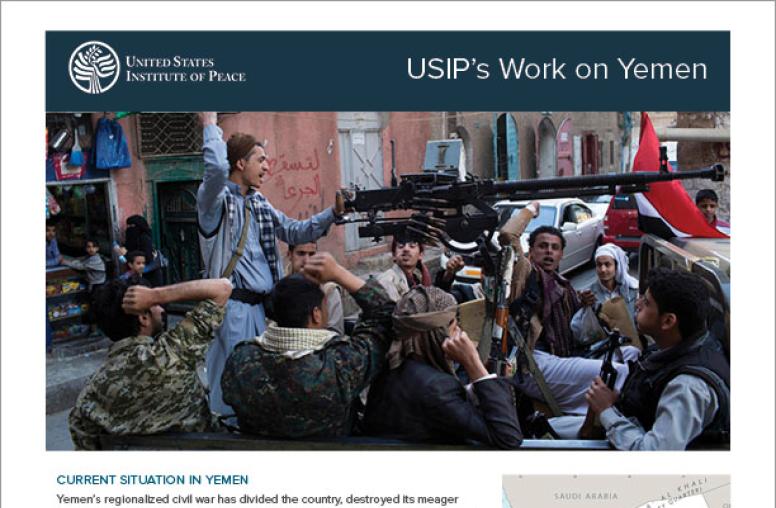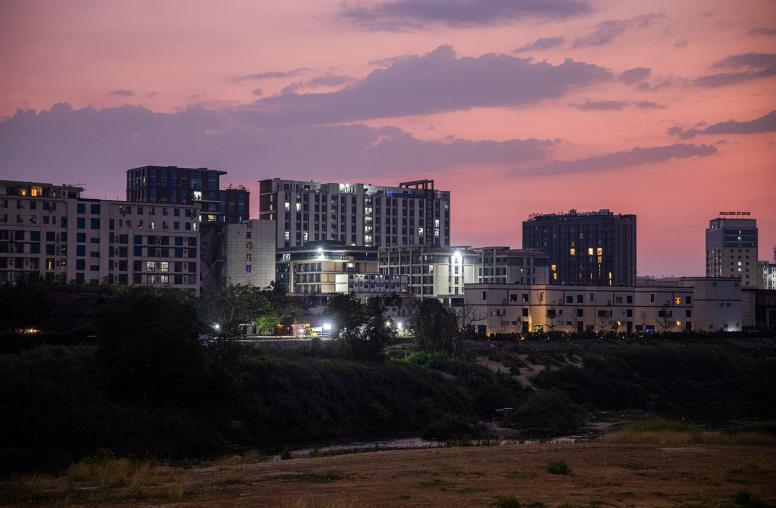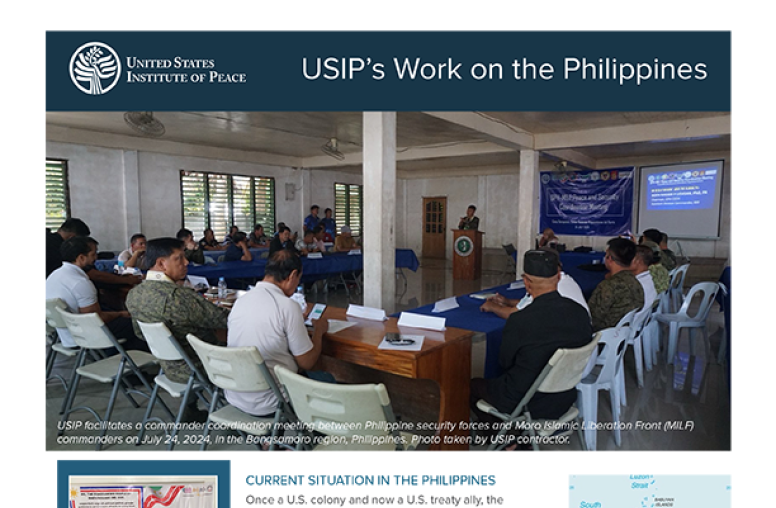Research & Analysis
U.S. Institute of Peace’s articles, reports, tools and other features provide policy analysis, research findings, and practitioner guides. These publications examine critical conflict issues at the center of the Institute’s work to prevent and resolve violent conflict.
The views expressed in these publications are those of the author(s).

Jason Tower on How China-Backed Scam Groups Threaten U.S. Interests
Transnational scams based out of Southeast Asia are increasingly targeting American citizens in a trend that is being “increasingly compared to fentanyl in terms of the impacts on the U.S.,” says USIP’s Jason Tower, adding that since the crime syndicates have close ties with China, we should be “pushing China on this issue to hold it accountable.”

The Current Situation in Yemen
Yemen’s regionalized civil war has divided the country, destroyed its meager infrastructure and created one the worst humanitarian crises in the world. From the start, it has been connected to a regional competition between Saudi Arabia (which has supported the internationally backed Yemeni government) and Iran (which has supported the Houthis). A U.N.-backed truce in 2022 brought relative calm to internal frontlines and, with help from the Sultanate of Oman and Saudi Arabia, the U.N. made progress toward a roadmap agreement to end the war. This progress was upended by the Gaza war in 2023, as the Houthis attacked Israel and international shipping through the Red Sea corridor. Houthi attacks, including on commercial shipping and U.S. naval assets, frayed international support for a peace deal that would see resources flow to the group and have set the country on different trajectory.

China Exploits Thailand’s Crackdown on Scam Compounds to Grow Security Influence
Under pressure from China, Thailand has begun its most significant crackdown to date on the transnational crime groups that dominate the Myanmar-Thailand border region. USIP’s Jason Tower explains what prompted the crackdown, how it will impact global efforts to curb transnational crime, what it says about China’s growing influence in the region, and how this all affects U.S. security interests.

Lessons for the U.S. from the Evolution of China’s Ties in Latin America
As the Trump administration looks to compete more effectively with China in Latin America, it should take stock of the various ways in which China’s relationship with the region has evolved over the past four years. China’s economic engagement with Latin America is changing in notable ways, alongside shifts in China’s economic landscape and industrial policy. China’s diplomatic outreach is also evolving as the country seeks to maintain and deepen political and economic ties to the region while pursuing a position of leadership within the Global South.

Border Security Training Program (BSTP)
USIP’s Border Security Training Program (BSTP) trains police officers from Kenya’s Border Police Unit (BPU) and General Service Unit (GSU) who are serving on al-Shabaab’s major transit corridor along the Kenya-Somalia border. The program, which began in 2017, is implemented in partnership with the U.S. Department of State’s Bureau of Counterterrorism and equips Kenyan police with the skills to better understand the civilian environment and cultivate relationships in order to more effectively achieve their mission and counter terrorist activity.

Dean Cheng on China’s Bid for Dominance in Space
As China works to establish “a space Silk Road” through space partnerships in Africa, “There is real reason to question whether Chinese behavior in space is going to be similar” to Beijing’s current disregard for international laws around issues such as maritime territorial claims and intellectual property rights, says USIP’s Dean Cheng.

The Current Situation in the Philippines
Once a U.S. colony and now a U.S. treaty ally, the Philippines sits at the heart of geopolitical contestation in East Asia. It is also home to a half-century old internal conflict that has long spawned transnational threats to global security.

Religious Engagement in Peacebuilding
With 84 percent of people worldwide identifying with a faith tradition, religion influences local, national, and international decision-making. Across the globe, violent extremism often is couched in religious terms, and religious discrimination is on the rise. At the same time, people of faith and religious organizations frequently are on the frontlines of peace efforts, assisting communities affected by violence. Although religious considerations have been marginal to peace efforts historically, governments and peacebuilding organizations increasingly recognize the importance of religion.

La Seguridad de EE. UU. en las Américas Pasa por El Salvador, Guatemala y Honduras
Los tres países más septentrionales de Centroamérica —Guatemala, El Salvador y Honduras— se encuentran entre los más pequeños y pobres del hemisferio occidental. Aunque a menudo pasados por alto, su ubicación en el punto de conexión entre América del Norte y del Sur los hace peligrosos de ignorar. La inestabilidad política y económica en esta región estratégicamente ubicada puede repercutir en toda América.

U.S. Security in the Americas Flows Through El Salvador, Guatemala, Honduras
The three northernmost countries of Central America — Guatemala, El Salvador and Honduras — are among the smallest and poorest in the Western Hemisphere. Though often overlooked, their location at the nexus of North and South America also makes them dangerous to ignore. Political and economic turmoil in this strategically located region can reverberate throughout the Americas.